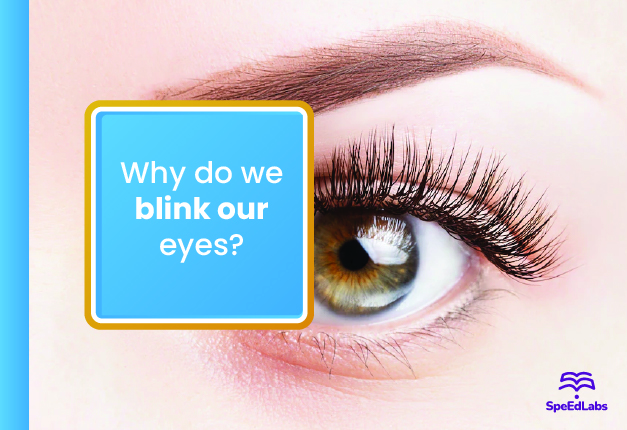Most of us had staring contests with our siblings or friends when we were kids. How long could you keep your gaze fixed on someone without blinking? Your eyes were burning and watering, and you finally gave up. Why was it so difficult to go a long time without blinking? Why do you need to blink at all, anyway?
Blinking is necessary for two reasons: to clear dust particles from the eyeball and to lubricate the eyeball. The average person blinks approximately 15 times per minute, even if they are not aware of it. Many factors can influence average blink speed, including fatigue and medication use.
What Is The Role Of Tear Film?
Blinking cleans and replenishes the tear film, the smooth, moist layer that covers our eyes. Water, oil, and mucus make up your tear film and tears (and hundreds of other components such as lysosomes, which function like natural antibiotics). The cornea, the clear, dome-like structure on the front of the eye, is nourished by the tear film, which contains many nutrients and amino acids.
Tear film does more than just keep your eyes lubricated:
- Aids in the formation of an almost perfectly smooth optical surface on top of the cornea for proper light focus.
- Because there are no blood vessels to deliver oxygen directly to the cornea, it is transferred from the atmosphere.
- Because lysosomes and other antibacterial enzymes are present, it prevents infection.
- Removes debris
- When there is a surface injury, it provides a pathway for white blood cells.
Your eyelids play an important role in this. They contain several glands that secrete the components of your tears when you blink, in addition to protecting your eye and keeping things dark while you sleep.
A slight horizontal movement of the eyelid also pushes debris toward the puncta (tear ducts), which are small openings in the corners of the eyes that drain tears. Tears then flush out the debris.
Brain and Blinking
While these are well-known reasons for blinking, research also suggests that you blink for your brain. Blinks, according to scientists, are a way to get a brief mental break without being distracted by visual stimuli.
According to one study, the precise moments when we blink may not be random. We may blink at very predictable intervals. Most people, for example, blink at the end of a sentence when reading. People tend to blink when the speaker pauses between statements when listening to a speech. When people are watching a video, they are more likely to blink if the action on the screen lags for a second.
Researchers also discovered that when people blinked, mental activity increased in areas of the brain that function when the mind is at rest. They hypothesised that activating this part of the brain provides a brief mental break that allows for improved attention when the eyes open again.
What Else Does Blinking Do?
Blinking can also help when you are feeling down. When you cry, you blink more frequently to clear the tears away. This keeps a lake from forming on the eye, which could cause vision to blur.
It is a reflex to blink. You can make yourself blink voluntarily or involuntarily. Blinking takes 400 milliseconds for the average person. Most people blink between 10 and 20 times per minute, with the average being around 15 or 16. Some circumstances, however, cause people to blink more or less frequently.
If there is something in your eye, for example, you may blink more frequently. Certain conditions, such as an ingrown eyelash, can make you feel as if something is in your eye, causing you to blink more. Allergies, pink eye, and other forms of inflammation can also set off the reaction. Tics, or habitual involuntary movements, cause some people to blink excessively, and stress and anxiety can also cause you to blink excessively. You may blink more frequently if you have uncorrected vision problems because your eyes are trying to correct the blurry vision naturally.
A person may blink more slowly or less frequently if the facial nerve that controls eyelid closure is damaged. Fatigue, as well as some medications, can have the same effect. When you are concentrating on something, such as watching a movie, you may blink less to maintain your concentration. When reading, for example, people are more likely to blink at the end of a sentence than in the middle, according to her.
Also published on Medium.
